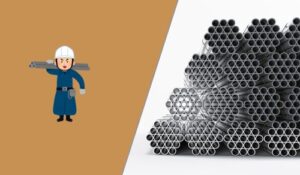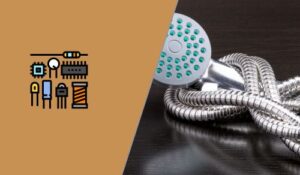When importing shower systems from China, procurement officers for large companies must navigate a range of challenges. While China offers a vast market of affordable and customizable products, there are significant risks that can affect your business, including compliance issues, intellectual property theft, and logistical complications. Understanding these risks upfront can help you mitigate potential problems and ensure smooth operations.
The main risks of importing showers from China include non-compliance with safety and quality standards, which can lead to rejected goods, legal penalties, and reputational damage. There is also the potential for intellectual property theft, where designs or innovations are copied and sold elsewhere. Furthermore, challenges such as delayed shipments, poor quality control, and logistical hurdles can disrupt the supply chain.
To avoid these pitfalls, companies need to take a proactive approach to supplier selection and due diligence. Here’s a closer look at the key risks and how to manage them effectively.
What Is the Risk of Sourcing from China?
One of the most significant risks is intellectual property theft. Factories or third-party manufacturers may copy your proprietary designs or products and sell them under a different name. Protecting your IP is essential, and you should consider working with a trusted sourcing agent or using contracts that safeguard your intellectual property rights. Additionally, you may face cultural and linguistic barriers that can complicate communication and lead to misunderstandings.
To reduce this risk, ensure that you:
- Work with verified suppliers who have a strong reputation for integrity.
- Sign non-disclosure agreements (NDAs) and intellectual property contracts.
- Use sourcing agents with long-standing relationships in the industry.
What Are the Potential Compliance Issues?
When importing shower systems into the U.S., Europe, or other developed markets, products must meet stringent safety and quality standards. Non-compliance can lead to rejected shipments, legal fines, or even product recalls, which can tarnish your brand’s reputation.
To mitigate this, it’s important to:
- Work with suppliers who have experience in international standards such as CE (Conformité Européenne), UPC (Uniform Plumbing Code), and WaterSense (for water efficiency).
- Arrange for third-party quality checks and product testing before shipment.
- Educate your suppliers about the specific regulations in your target market to avoid costly compliance issues.
How to Manage Quality Control and Product Consistency?
One of the most frequent issues when importing from China is inconsistent product quality. You might receive a high-quality sample, but when the order arrives in bulk, it could fail to meet the same standards.
To manage this, you should:
- Establish a detailed quality control process that includes specific criteria your supplier must meet.
- Hire third-party inspectors to verify the quality of products before shipment.
- Communicate regularly with the supplier to ensure they understand and adhere to your specifications.
What Are the Logistical and Shipping Risks?
Shipping delays and customs clearance issues are common when importing from overseas. Late shipments can disrupt your business operations, especially for time-sensitive projects. Additionally, unforeseen customs duties and shipping costs can affect your profit margins.
To minimize these risks:
- Work with a reliable freight forwarder who understands the customs process in your destination country.
- Ensure all required documentation is completed accurately to avoid delays.
- Consider using express shipping services or air freight for urgent orders.
How Can Procurement Officers Protect Their Intellectual Property?
Procurement officers should prioritize IP protection by working with suppliers who have a proven track record of reliability. Non-disclosure agreements (NDAs) and other legal contracts can also help protect your designs. It’s advisable to register your IP in China to ensure legal recourse in case of infringement.
For further IP protection:
- Collaborate with lawyers who specialize in Chinese intellectual property laws.
- Keep detailed records of all communications and agreements with suppliers.
Installation Requirements for Custom Thermostatic Bath Shower Mixers
Installing a custom thermostatic bath shower mixer requires attention to several important factors to ensure a seamless experience. These mixers are designed to control both the temperature and the flow of water, making installation more complex than standard models.
Key installation requirements include:
- Water pressure: Ensure that the system maintains an optimal pressure of 1 to 5 bars for the mixer to function effectively.
- Correct plumbing connections: The hot and cold water lines must be connected properly to avoid malfunctions.
- Professional installation: Given the complexity, it is advisable to hire a qualified plumber who can adhere to the manufacturer’s guidelines and avoid any potential leaks or damage.
Common Issues with Shower Faucets That Require Service
Shower faucets, like any frequently used equipment, can develop issues over time. Some of the most common problems include:
- Leaks: Often caused by worn-out washers or O-rings, leaks are a frequent issue. Regular maintenance can help prevent small problems from becoming major headaches.
- Water pressure fluctuations: Inconsistent water pressure can occur due to sediment build-up or blockages within the system. Flushing the system or cleaning filters can help resolve this.
- Temperature control issues: In custom thermostatic shower systems, temperature control can become faulty if the thermostatic valve isn’t functioning properly. Replacing the valve or recalibrating the system can fix this.
Summary
Importing shower systems from China offers numerous benefits, but the risks cannot be ignored. From intellectual property theft to logistical challenges and compliance issues, procurement officers must stay vigilant throughout the sourcing process. By working with trusted suppliers, conducting regular inspections, and staying informed about international standards, companies can successfully navigate the complexities of importing and ensure they deliver quality products to their customers.




